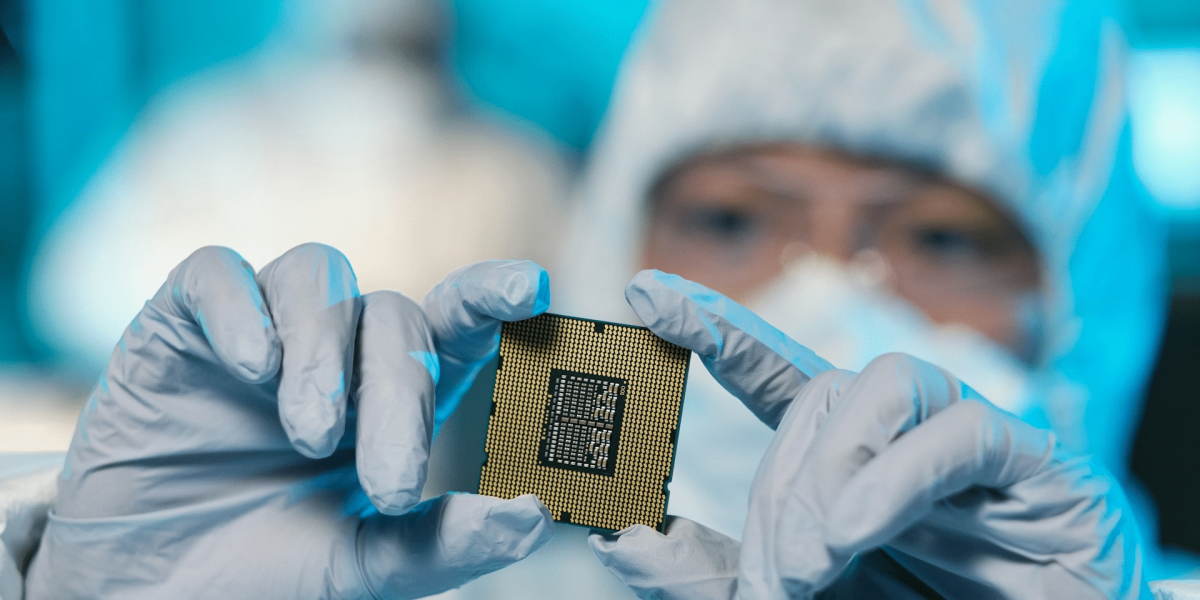The semiconductor industry plays a pivotal role in today’s global economy, powering everything from consumer electronics to automotive manufacturing. Recently, Portland has emerged as a key player in the semiconductor supply chain, benefiting from substantial federal funding aimed at boosting the sector’s infrastructure, innovation, and competitiveness. This article explores how federal funding is transforming Portland’s semiconductor supply chain, highlighting the key factors such as infrastructure development, workforce training, and green manufacturing initiatives.
Infrastructure Development
One of the most significant impacts of federal funding in Portland’s semiconductor supply chain is infrastructure development. The semiconductor industry relies heavily on advanced facilities, cleanrooms, and specialized equipment to maintain high levels of precision and quality in chip manufacturing. Federal investments are helping build and modernize these critical infrastructures in the Portland area, which has long been a hub for semiconductor manufacturing, thanks in part to companies like Intel and ON Semiconductor.
With improved infrastructure, Portland’s semiconductor industry can enhance production capabilities, increase output, and better meet the growing global demand for chips. These advancements also attract additional private investment, as companies recognize the region’s potential to become a leading semiconductor hub in the U.S.
Workforce Training and Education
Federal funding is also channeling resources into workforce training and education, which are essential for maintaining a competitive edge in the highly technical semiconductor industry. The sector requires skilled workers trained in fields such as electrical engineering, computer science, materials science, and precision manufacturing.
Portland’s local educational institutions, such as Portland State University and the Oregon Institute of Technology, are partnering with semiconductor companies to create specialized programs that train the next generation of workers. These initiatives focus on both entry-level roles and advanced research positions, ensuring that Portland’s workforce can meet the industry’s needs.
By investing in education and training, federal funding helps create a sustainable talent pipeline, reducing the skills gap and enabling semiconductor manufacturers to scale their operations in the Portland area.
Advanced Manufacturing Facilities
Advanced manufacturing facilities are a cornerstone of the semiconductor supply chain. Federal funding is being used to develop state-of-the-art facilities in Portland, designed to support the production of next-generation semiconductors. These new or upgraded plants are critical for meeting the increasing demand for smaller, faster, and more energy-efficient chips.
Portland is home to several key semiconductor manufacturing plants, including Intel’s large production campus. Federal funding is supporting the expansion and modernization of these facilities, enabling them to incorporate advanced technologies such as artificial intelligence (AI) and robotics in their production processes.
These advancements improve productivity, reduce waste, and enhance the overall efficiency of semiconductor production, making Portland a competitive player in the global market.
Supply Chain Resilience
The COVID-19 pandemic exposed vulnerabilities in the global semiconductor supply chain, leading to significant chip shortages that affected industries from automotive to consumer electronics. In response, federal funding is being used to build supply chain resilience in Portland’s semiconductor sector.
By investing in local production capabilities and encouraging the development of domestic supply chains, federal funding helps reduce dependence on foreign suppliers. This not only mitigates the risk of future disruptions but also strengthens Portland’s position as a reliable source of semiconductors for U.S. companies.
Building supply chain resilience is crucial for ensuring that U.S. industries have a consistent supply of critical components, reducing the risk of economic disruptions due to semiconductor shortages.
Research and Development Funding
Innovation is at the heart of the semiconductor industry, and research and development (R&D) funding is essential for driving new breakthroughs. Federal funding is accelerating R&D efforts in Portland, supporting cutting-edge research in areas such as nanotechnology, AI integration in chip design, and quantum computing.
Portland’s research institutions, including universities and private R&D centers, are benefiting from increased funding, allowing them to collaborate with industry leaders to develop next-generation semiconductor technologies. These innovations are key to maintaining the U.S.’s global competitiveness in the semiconductor industry and ensuring that Portland remains at the forefront of technological advancements.
Public-Private Partnerships
Federal funding has also fostered public-private partnerships in Portland’s semiconductor sector, bringing together government agencies, educational institutions, and private companies to collaborate on key projects. These partnerships are essential for leveraging resources and expertise, ensuring that the semiconductor industry remains competitive on a global scale.
By working together, public and private entities can more effectively address challenges such as workforce development, infrastructure needs, and supply chain vulnerabilities. This collaborative approach not only accelerates innovation but also ensures that federal funding is used efficiently and strategically.
Economic Growth in Portland
The influx of federal funding into Portland’s semiconductor industry is driving significant economic growth in the region. The expansion of manufacturing facilities, increased R&D activities, and the development of local supply chains are creating new jobs and stimulating economic activity.
As Portland becomes a central hub for semiconductor production, the region is attracting talent, investment, and business opportunities, further boosting its economy. This growth has a ripple effect, benefiting other sectors such as real estate, retail, and services, and solidifying Portland’s reputation as a key player in the high-tech industry.
Global Competitiveness
Federal funding is positioning Portland to compete on the global stage in the semiconductor industry. With countries like China, South Korea, and Taiwan leading in semiconductor production, the U.S. has recognized the need to strengthen its own capabilities to remain competitive. Investments in Portland’s infrastructure, workforce, and innovation efforts are helping the region build a strong foundation for competing with these global players.
By enhancing its production capacity, improving R&D efforts, and developing a skilled workforce, Portland is contributing to the U.S.’s overall global competitiveness in the semiconductor industry.
Green Manufacturing Initiatives
Sustainability is becoming increasingly important in the semiconductor industry, and federal funding is supporting green manufacturing initiatives in Portland. Semiconductor production is energy-intensive, and there is a growing demand for more environmentally friendly production methods.
Federal funding is encouraging the adoption of energy-efficient technologies, waste reduction strategies, and the use of renewable energy sources in semiconductor manufacturing. These efforts align with Portland’s broader commitment to sustainability and help the industry reduce its environmental impact while maintaining high production standards.
Semiconductor Innovation
Finally, federal funding is fueling semiconductor innovation in Portland, enabling the development of new technologies that will shape the future of the industry. Innovations in areas such as AI, quantum computing, and advanced chip design are essential for meeting the growing demand for faster, more efficient semiconductors.
Portland’s semiconductor industry is poised to become a leader in these cutting-edge technologies, thanks to increased federal funding and a strong focus on R&D. As new products and technologies emerge from this innovation ecosystem, Portland’s semiconductor supply chain will continue to grow, further boosting the region’s economy and global standing.
Federal funding has provided a significant boost to Portland’s semiconductor supply chain, driving improvements in infrastructure, workforce development, and innovation. By investing in advanced manufacturing facilities, fostering public-private partnerships, and supporting green manufacturing initiatives, federal resources are positioning Portland as a leader in the U.S. semiconductor industry. As the global demand for semiconductors continues to rise, Portland’s semiconductor sector is well-equipped to meet these challenges and maintain its competitive edge in the years to come.








